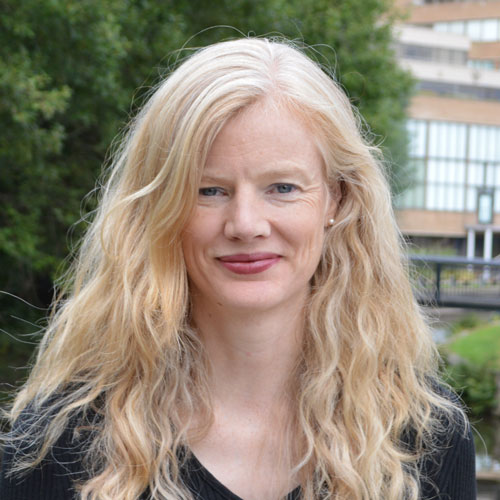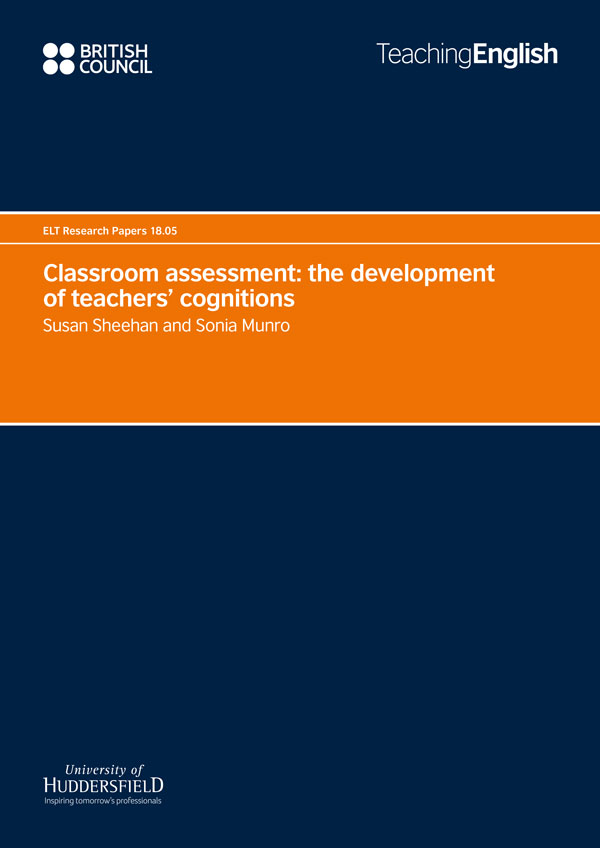
Dr Susan Sheehan
HudCRES
Some researchers estimate that teachers spend up to two thirds of their time assessing students. It is also common to see articles in newspapers complaining that school-children are being over-tested or in some cases that they are not being tested enough.
This post is not about the over-use of assessment or the pressures of teaching to the test. Rather, it is about teacher cognition and assessment. Here, cognition is defined as what teachers think, know and believe about a matter (Borg, 2006).
In this case, the teachers involved are teaching English as a foreign language.
In a previous post, Assessment – attitudes, practices, needs, I wrote about our exploration of classroom-based assessment practices, funded by the British Council. The project report is available to download here. During this project we observed teachers successfully deploying a range of assessment practices. In interviews the teachers stated they found assessment hard and lack confidence about the topic. They also stated that assessment policy and assessments were generally set by management and that they had very little input in them. This situation left us in something of a quandary - the teachers claimed to know little about assessment but were very well able to assess their students. Further interviews shed light on the situation and helped us to make sense of the contradiction. The teachers classified the activities we had observed as being part of good teaching practice and not part of the assessment process.
There seemed to be a real gap in the way the teachers thought about assessment and the way the assessment experts viewed the topic. We decided to conduct a second research project which explored classroom-based assessment practices but this time with a focus on teacher cognition.
We conducted a qualitatively-orientated project which explored teachers’ cognitions about assessment.
The first data collection method was a questionnaire. We had been inspired by Borg and Burns’ (2008) survey of teacher beliefs about teaching grammar. Our questionnaire had three sections:
- How the participants were assessed while they were at school?
- The participants’ assessment training experiences
- The participants’ assessment practices and their assessment ‘credo’.
We wanted to understand what, if any, effect school assessment experiences had on the participants’ assessment practice. We also wanted to explore the participants’ training experiences and their current assessment practices and beliefs. The on-line global survey was completed by 261 teachers in 57 different countries. We then conducted on-line interviews with 10 participants to explore the reasoning behind the responses given on the questionnaire.
For the second stage of the project we conducted 5 classroom-observations which focussed on assessment practices. We conducted follow-up interviews with the observed teachers which covered how teachers planned their assessment activities and how they developed their assessment practices.
Some suprising findings
We expected that the teachers would replicate the assessment practices they had experienced themselves as schoolchildren. In fact, 74.4% of questionnaire participants disagreed with the notion that they used the same assessment techniques as teachers as they had experienced as school pupils.
One participant explained: “My teachers liked to give us tests, multiple-choice tests, writing tests… without explaining why we should do those tests, the tests were unreasonable.” For some of the participants there was a lightbulb moment such as attending a training course on assessment which led them to explore assessment practices which are associated with assessment for learning. For others it was a growing realisation that they needed to use a wider range of assessments and that tests were not always the best way to assess learning. For example, one participant stated that at school the assessment process was opaque to her: “…the grades were shady, you never knew why you got a three or a four, I didn’t like that so we always explain to the students which grades they got.” Many of the participants indicated on the questionnaire and in interview that they were dissatisfied with their assessment experiences despite gaining high marks in traditional pen and paper tests. A participant stated that: “I did well but I simply realised that was not the best method to evaluate my students.” The situation was summarised very succinctly by one participant: “My experience taught me the things I should stop doing.”
Some less surprising findings
Learner-centred teaching was important to the participants. One stated: “I’m interested in finding what each person can do. You’ve got to be good at assessing and adapting so everyone can gain.” The care the teachers had for their students was exemplified by this quote: “You are always assessing students the minute they walk through the door, maybe not formally but informally.” So, the teachers saw assessment as an on-going process which they were always engaged in as through assessment it is possible to work with every student to achieve their best potential.
One participant summarised her teaching and assessment philosophy, saying: “You can’t have one without the other.”
This quote brought to mind the Frank Sinatra song about love and marriage ... although in the case of Sinatra's own marriages, we can only hope that assessment practices run more smoothly!



